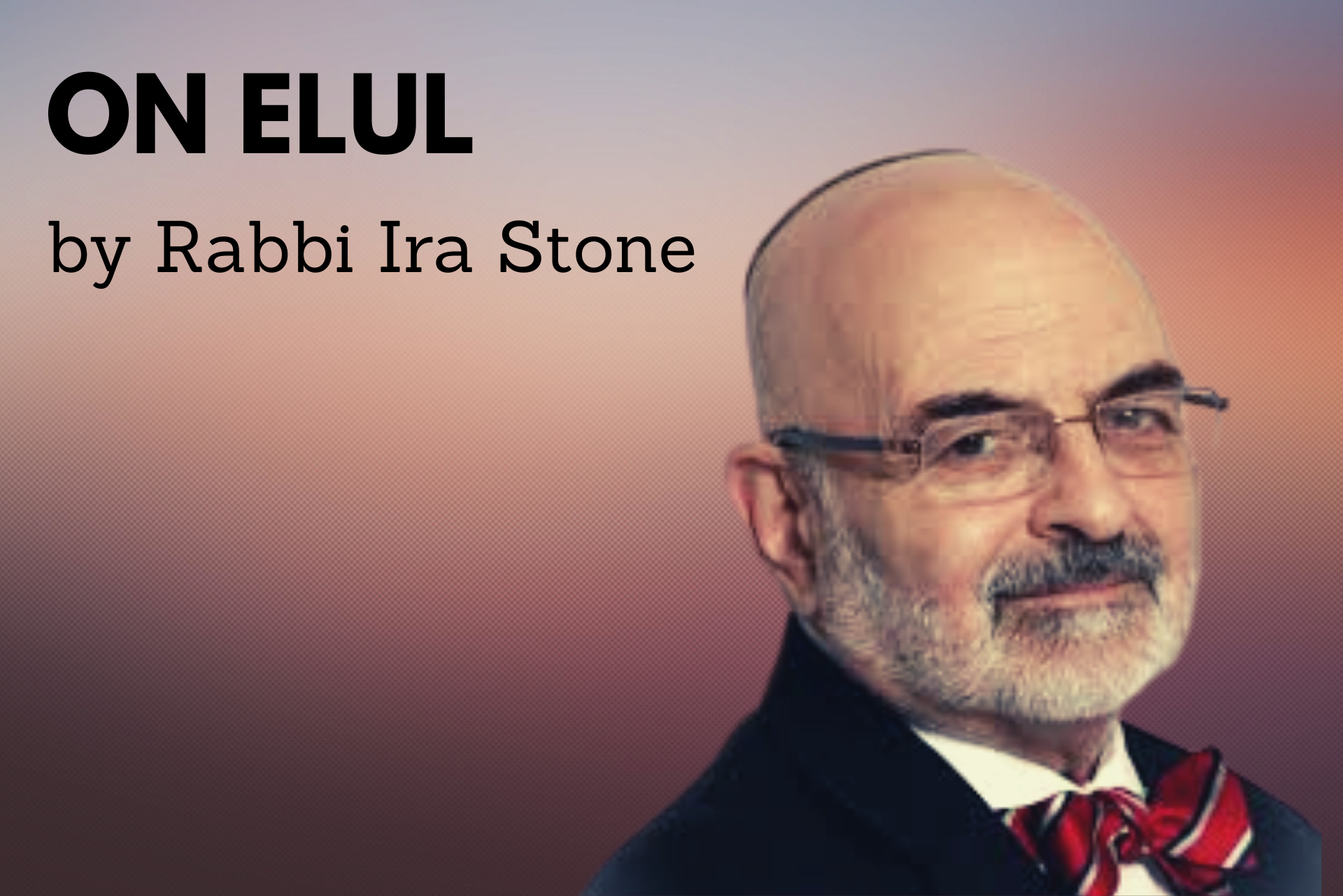
I will have the opportunity to begin the program on August 12th with a focus on the meaning of the preparatory month of Elul in a general way. While I don’t want to give away the content of that session, I do want to refer to some of what I will be teaching as a way of helping all of us to turn our attention to the central element of the place of Elul in the religious calendar. That place, so to speak, is precisely the place of Heshbon HaNefesh, the accounting of the soul that is so important to the High Holy Days.
Of course, for Mussar students, Heshbon HaNefesh is not something relegated to one time of the year. It is an integral part of our daily practice. One interesting insight into Heshbon HaNefesh that I recently discovered comes from the book Netivot Sholom, by Rabbi Sholom Noah Berezovsky (otherwise known as the Slonimer Rav). In the course of his discussion of a passage in the Talmud he establishes the fact that Heshbon HaNefesh is critical to the survival of the world. He goes on to explain that this is because each person is considered to be an entire world.
The purpose of Heshbon, he continues, is not merely to identify particular actions that we have performed that need to be accounted for or repaired in some way. Rather, ultimately, the purpose of Heshbon is to dig much deeper. To dig beyond the mere urges that cause us to act in ways that we know are hurtful or selfish. To dig deeply enough to discover the task that defines our very existence. For, he reminds us, each individual human being contains a task that only she or he can perform and the performance of which constitutes the very raison d’etre of that person’s being. To discover this–or even to discover an inkling of it–guides us on the path of repair that we must each do to fulfil our spiritual destiny.
The Slonimer Rav does not promise that we will succeed in this task. He only reminds us that this is the true task of Heshbon HaNefesh and it is one that is rich enough to engage us again and again each year before the High Holy Days. It is also a task rich enough to engage us every day as we Mussarniks use Elul to recharge our Heshbon engines so that we may re-commit ourselves to a daily practice of Heshbon HaNefesh, the essence of Mussar.
May the holidays during these difficult times focus all of us on this important work.
